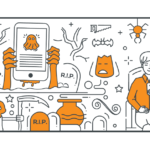
Your mobile phone is a potent organizational and promotional tool. But if used incorrectly, it can also be a major annoyance to customers — and even a detriment to your business. Follow these simple tips to ensure your cell phone remains a growth-boosting ally, and doesn’t become a customer-confusing handicap.
Know When to Go Silent
Nothing ruins an important meeting like unexpected ringing or buzzing. Keep your phone off or in silent mode in the following situations:
Sit-down meetings. If you’re sitting down to discuss something, even if it’s over a quick lunch, turn your phone to silent. Interrupting a conversation to take a call can frustrate clients and important decision makers (i.e., architects, designers, engineers or inspectors). If you can’t postpone a call, politely ask to be excused and step away from the room. Answering your phone at the table can make others feel ignored and uncomfortable.
Major transactions. Keep your phone on silent during initial bids, face-to-face payments and final walkthroughs. Answering the phone in these situations can distract your client and make them feel less valued. This is especially true with initial bids and final walkthroughs. First and last impressions are crucial parts of garnering rave reviews. Interrupting these meetings with phone calls can damage your image.
New client interviews. Stopping your interview to answer a phone call will make your potential customer feel less important, and it can hurt your chances of winning the job. Placing your phone on silent during your interview will eliminate interruptions and help you focus on the task at hand.
Pay Attention to Your Surroundings
Job sites are noisy, and this can make over-the-phone conversations difficult. If you receive a call from a client, try to find somewhere quiet to talk. Yelling over machinery can be off-putting to homeowners and make it hard to complete a conversation. Phone calls may also include sensitive information about your business or clients. Be sure to speak to clients away from subcontractors or anyone else on the job site. Discussing payments, insurance and bank information is best done in private.
Save Important Numbers
Neglecting to save a client’s phone number will kill consistent communication and can cause serious problems in the event of an emergency. Not organizing your clients’ phone numbers can also result in mistakes when answering the phone. Confusing a customer with a subcontractor, or visa versa, is a sign of disorganization, and it can damage your business’ reputation. Be sure to save all your important numbers before you begin work. This includes contact information for customers, subcontractors, architects, designers and inspectors.
Use the Right Tone
Your over-the-phone demeanor plays an important role in how homeowners view your business. Technical jargon, impatience and gruffness can intimidate clients and reduce customer-contractor trust. Using a courteous and upbeat tone will reassure your clients and present you as a customer-oriented business owner. Patience is also important in over-the-phone interactions. Even if your client’s questions or concerns seem small, be sure to answer them thoroughly. A dedication to customer needs is one of the easiest ways to win and keep business.
Stay Up to Date on Trends
Get the latest marketing & business tips in your inbox.










